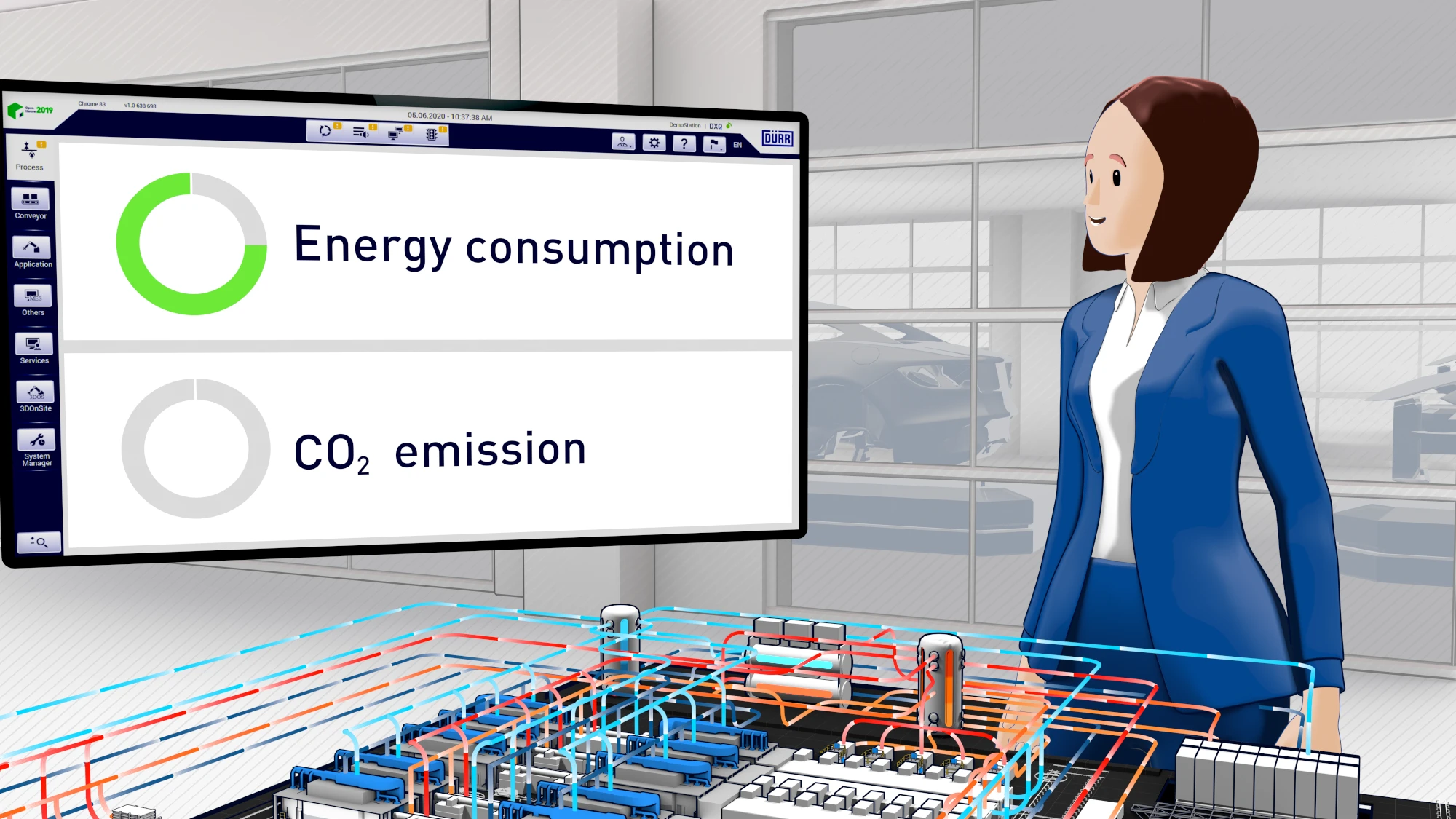Paint shops consume the most energy throughout the entire vehicle manufacturing process since applying paint and drying car bodies are very energy-intensive. Consequently, modern paint shops’ carbon footprints are still significant despite technical progress. “The EU wants to be climate neutral by 2050. We had this target in mind when we adopted a new strategy on the path to a carbon-neutral paint shop from an energy perspective. Instead of continuously increasing the energy efficiency of individual elements such as paint booths and ovens, as we did before, we developed the EcoQPower system, which considers all paint shop energy sources and network components, as well as energy flows,” explained Jens Oliver Reiner, Senior Vice President Sales in the Paint and Final Assembly division at Dürr. The new concept analyzes energy sources and energy sinks in operation, considering various operating states and historic climate data. Based on this analysis, the EcoQPower energy network systematically recovers energy in one place, which can then be reused elsewhere.
Significant carbon footprint reduction
Sustainability is often promised, but these promises frequently turn out to be nothing more than greenwashing. Dürr partnered with the Fraunhofer Institute for Building Physics to prove that the first paint shop optimized with EcoQPower being built for a German vehicle manufacturer emits fewer greenhouse gases than a paint shop without the energy network system. The scientists analyzed the effects on the carbon footprint by simulating and calculating the values for two identical, all-electric factories in the same location and with the same performance data – one with and one without an EcoQPower system.
In keeping with the circular economy, the entire life cycle from paint shop production, including the transportation of materials to the utilization phase and the end of life, was analyzed. The Fraunhofer Institute for Building Physics’ study found that the EcoQPower system reduces the carbon footprint by 19.2 percent over this entire period. Since 91 percent of emissions are produced in the utilization phase, EcoQPower enables paint shop operators to run a more climate-friendly business. The investment also pays off in terms of sustainability, with Dürr’s energy consumption analysis confirming that EcoQPower reduces utilization phase energy consumption by 20.6 percent, making the optimized paint shop about 21 percent more energy efficient than a modern standard system. As a result, operators can reduce their energy costs by seven figures over the assumed utilization period of 15 years and 110,000 painted car bodies per year.
No more unused energy with EcoQPower
EcoQPower is based on the concept that each manufacturing area only receives the appropriate energy and temperature level it actually needs. In a standard paint shop, all process steps, such as pretreatment, the oven, and the paint booth, have been viewed and supplied as individual components until now. For example, excess energy from the drying process that could be applied elsewhere is released unused into the environment. By considering the entire scope, the EcoQPower system delivers real benefits by integrating all waste heat sources, including those not previously used, and reuses energy at low temperatures. Heat pumps generate heating and cooling energy simultaneously, which is possible because Dürr’s experts measure each paint shop process step's heating and cooling requirements using proprietary software. With this knowledge, they leverage synergies from the processes and – in combination with resource-saving technology – enable economical energy use.
EU Taxonomy defines standards for sustainable projects
The EU Taxonomy is an instrument developed under the Green Deal, with the political objective of making Europe the first climate-neutral continent by 2050. By providing a transparent classification of sustainable investments, the regulation aims to ensure that financial resources fund projects that support climate and environmental protection. “Sustainability is becoming increasingly important for companies in the manufacturing sector. We help our customers make their production processes as energy-efficient as possible to achieve their decarbonization targets. We know that companies engaged in sustainable production will have more and more advantages in the long term for sourcing funding in Europe,” explains Reiner.



